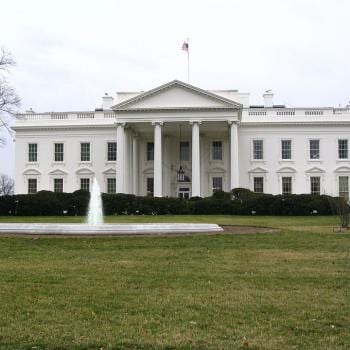Vox Nova is pleased to welcome a guest contribution from Marcus Gaddy.
I will be moderating the comments—DCU.
I’m a convert to Catholicism, only received in 2015, after growing up in the historically Black church. That heritage taught me early on that Black spirituality emphasizes Christ as liberator, both from sin and from those who sin against us. That freedom is not just spiritual and it is not just for us–it is at once personal and social. It is a freedom that is present here and now in the depths of hardship and it is a freedom that promises to carry us home to our God. That is something I see present in Catholic teaching, in the sacraments, and in the Mass; it is woven into our faith and how that faith should have us engage with the world. But our witness to that freedom is threatened far less by outside forces than it is by our own actions and inactions, and I grow increasingly impatient with the reluctance to affirm the dignity of Black people in the United States.
I became acutely aware of this after no charges were filed in the State killings of Mike Brown and Tamir Rice, when friends of mine posted pictures that proclaimed: “You deserve to parent your child without fear that he or she will be hurt or killed.” This was followed by: “Freedom from violence is reproductive justice.” I searched for a pro-life response, a message that these Black children were valuable, only to find that it seemed none of the usual suspects noticed or very much cared. The mantle of proclaiming the dignity of Black children was being claimed by the same actors who deny them that same dignity in the womb. This chance to show life as a seamless garment ended up showing that its greatest promoters were naked.
But there were more names: Walter Scott, Freddie Gray, Brendon Glenn, Eric Garner, Sandra Bland, Samuel DuBose, Philando Castile, John Crawford–all Black, all killed by police for nothing more than shopping, a traffic stop, or selling loose cigarettes on a street corner. And then there are those who survived, such as Charles Kinsey who was shot while lying prone on his back, arms raised, as he tried to soothe his autistic ward. Over and over, there’s been a call for justice, a call for reform, a call for Black lives to be treated as being of material value before the law, and the USCCB’s response has been underwhelming. The 2015 pastoral letter “The Racial Divide in the United States: A Reflection for the World Day of Peace 2015” evidenced little critical engagement from anyone, and the 2016 “The Catholic Church and the Black Lives Matter Movement: The Racial Divide in the United States Revisited” was a step back, being largely unreflective on the critiques leveled against the Church or Christians on issues of racial justice.
However, a decidedly urgent response only came after retaliation, both in the parish I attend and from USCCB. I was struck by how suddenly they condemned the retaliatory acts and called for peace in a previously one-sided aggression they had previously left largely relegated to the “Cultural Diversity” page. Again, when the Catholic Diocese of Camden took the official stance to punish student players who peacefully kneel during the national anthem to protest the State-sanctioned devaluation of Black life, I was struck by how they were quick to affirm and enforce symbolic allegiance to the State that continuously kills without consequence people that look like their students. The message to me was clear: Faith without works is dead.
The Church is right to say that all lives matter; they do. But in this world, we recognize that this objective reality is not realized in the world in which we live. At the March for Life every year, we implicitly proclaim that all lives don’t matter until the unborn matter. All lives don’t matter until those of the chronically ill matter. All lives don’t matter until Black lives matter.
It’s not enough for the Roman Catholic Church to simply declare the truth about the sanctity of life and the evil of racism; it’s a moral imperative that we demonstrate that it’s not just empty words. We recoil at accusations that pro-life really means pro-birth, with no consideration or care about life after gestation. But then the Church and pro-life movement as a whole in a moment that has captured the public consciousness has effectively proved its detractors correct. Despite the bodies of Black children bleeding out on the street, their fathers being killed without cause, and even officers conspiring to frame them for their own deaths, the tagline the pro-life movement wants to use in my community is that “The most dangerous place for an African American is in the womb.”
The Church can’t audit the issue of life. If the Church and its pro-life allies can’t find it in themselves to make the unqualified statement affirming the dignity of Black children dying at the end of a barrel of a State-sanctioned gun in their neighborhoods; if it can’t support the dignity of Black fathers being gunned down by the State in front of their children in the car or going to the store; it lacks the integrity to critique the State-sanctioned killing of Black children by a pill in the womb. To do otherwise is hypocrisy, which turns our witness into a cynical deceit and a moral outrage.
October is Respect Life Month, in which the Church produces materials to “help Catholics understand, value, and become engaged with supporting the dignity of the human person, and therefore the gift of every person’s life.” Their lives already matter, of course, but they are routinely devalued in society. This year, let’s also lift up Black lives, just as we do for the others who are denied their God-given worth. It’s the least we can do as we face the already, but not yet that is Christian life.












